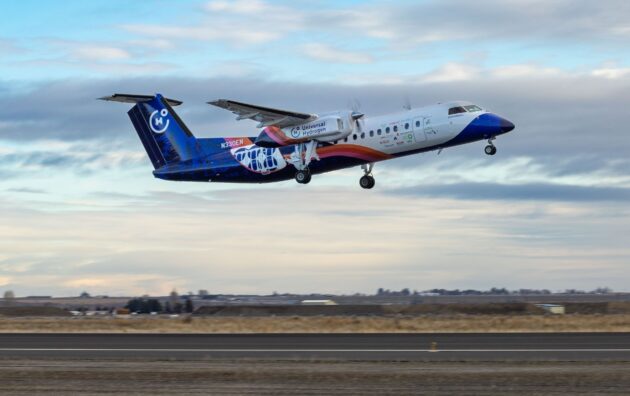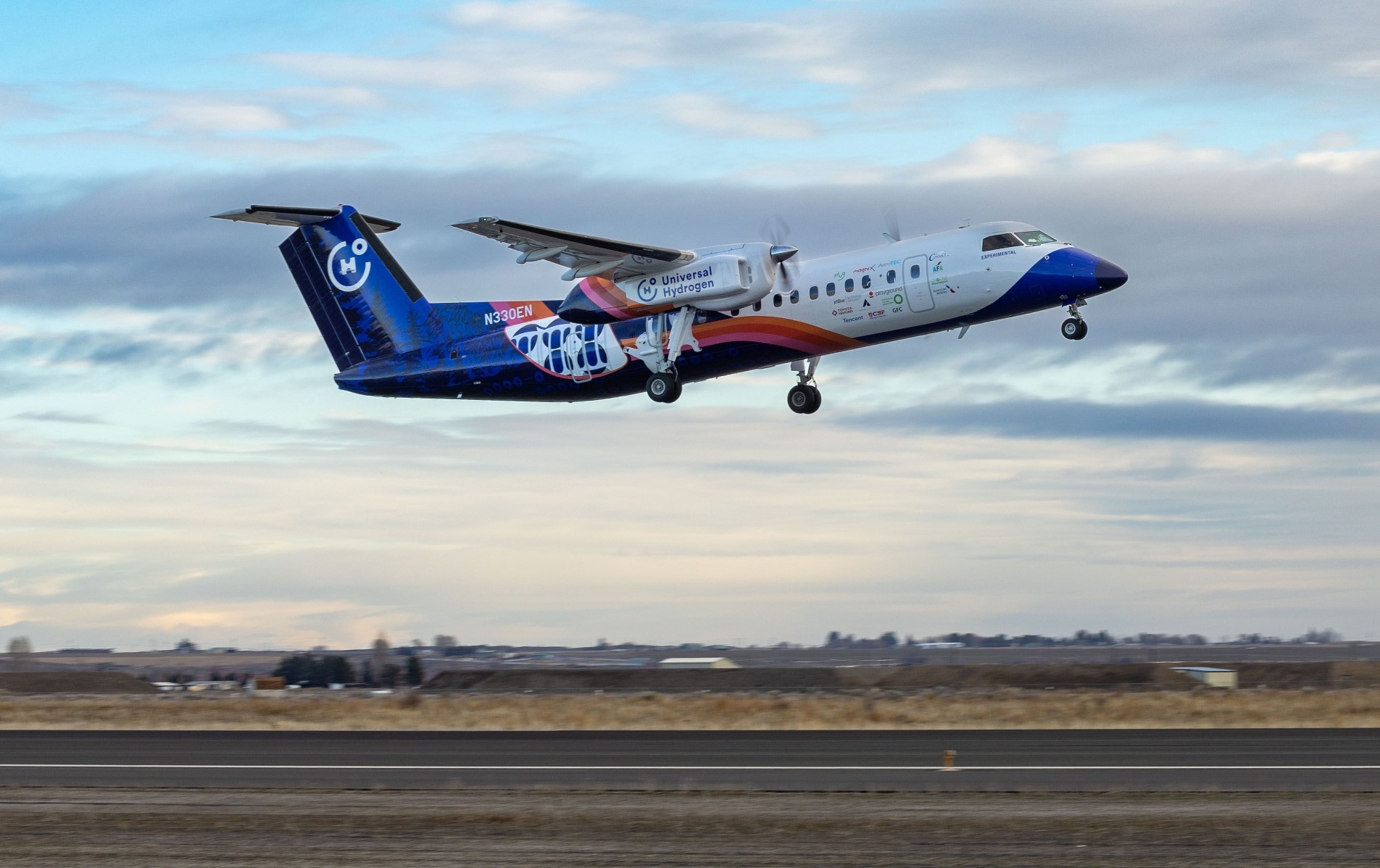[ad_1]

A prototype aircraft with a hydrogen-fueled powertrain successfully completed an initial 15-minute flight today at Grant County International Airport in Moses Lake, Wash., marking a significant step for zero-emission aviation.
Los Angeles-based Universal Hydrogen had the 40-passenger De Havilland Dash 8-300 turboprop converted to use hydrogen to power an electric propulsion system mounted on the plane’s right wing. The system incorporates a fuel cell built by Plug Power and a megawatt-class motor built by Everett, Wash.-based MagniX. Seattle-based AeroTEC assisted with the engineering for the conversion.
The engine on the left side was left unconverted to serve as a backup in case the hydrogen-based system encountered problems during flight.
Universal Hydrogen and its partners worked in Moses Lake for months to get the plane — nicknamed Lightning McClean — ready for today’s first aerial tryout, conducted under the conditions of an experimental airworthiness certificate from the Federal Aviation Administration.
The flight began at 8:41 a.m. PT and reached a maximum altitude of 3,500 feet.
“We were able to throttle back the fossil-fuel turbine engine to demonstrate cruise principally on hydrogen power,” test pilot Alex Kroll said afterward in a news release. “The airplane handled beautifully, and the noise and vibrations from the fuel cell powertrain are significantly lower than from the conventional turbine engine.”
Universal Hydrogen is among a growing number of aviation companies aiming to use cleaner fuel technologies — including green hydrogen as well as all-electric and hybrid-electric propulsion systems — to reduce carbon emissions.
Although a Dash 8 is being used for flight tests, Universal Hydrogen’s initial goal is to convert a different type of regional aircraft, the ATR 72-600, to use hydrogen fuel. The current schedule calls for deliveries to begin in 2025.
Universal Hydrogen says it has made deals with 16 customers for 247 aircraft conversions, resulting in an order book valued at $1 billion for conversions and more than $2 billion in fuel services over the first 10 years of operation.
Representatives from Connect Airlines and Amelia — the North American and European launch customers for the conversions, respectively — were on hand for today’s flight.
“Today will go down in the history books as the true start to the decarbonization of the global airline industry, and we at Connect Airlines are extremely proud of the role that we, as the first U.S. operator, will play in leading the way with Universal Hydrogen,” said John Thomas, CEO of Connect Airlines.
Universal Hydrogen numbers GE Aviation, Airbus Ventures, Toyota Ventures, JetBlue Ventures and American Airlines as its backers. Its longer-term vision is to extend its modular hydrogen fueling system to single-aisle passenger planes like the Airbus 320 and the Boeing 737.
“More than half of aviation CO2 emissions today come from the A320 and 737 family of aircraft,” Universal Hydrogen co-founder and CEO Paul Eremenko said. “Both Airbus and Boeing will need to replace these venerable airplanes with a new design starting development in the late 2020s and entering passenger service in the mid-2030s. Making their successors hydrogen airplanes is a golden opportunity — perhaps the only opportunity — for aviation to get anywhere near meeting Paris Agreement emissions targets without having to curb aviation traffic volumes.”
[ad_2]
Source link

